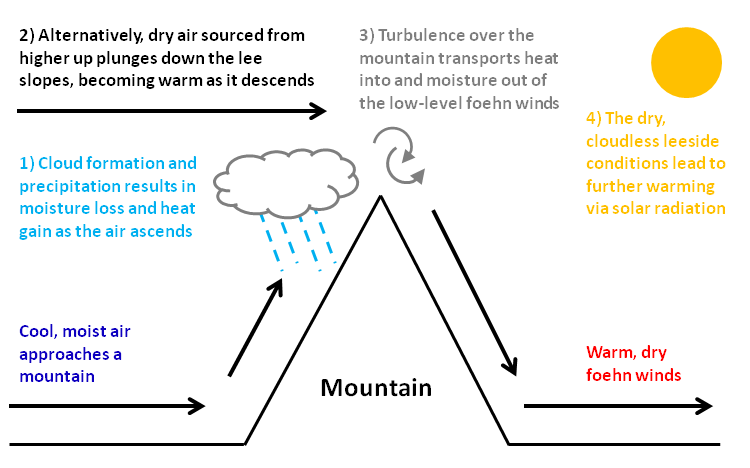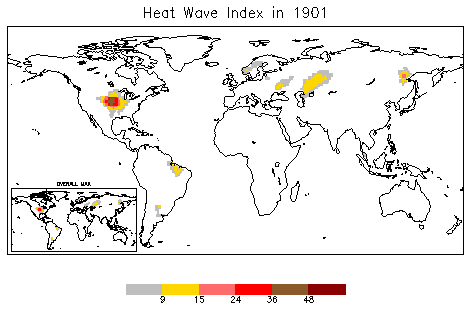|
Heinrich Von Ficker
Heinrich von Ficker (22 November 1881 – 29 April 1957) was a German-Austrian meteorologist and geophysicist who was a native of Munich. He was the son of historian Julius von Ficker (1826–1902). Career From 1911 he was a professor of meteorology at the University of Graz, and from 1923 to 1937 was a professor at the University of Berlin. During his tenure at Berlin, he also spent several years as director of the Prussian Meteorological Institute. From 1937 until his retirement in 1952, he was a professor at University of Vienna and director of the ''Zentralanstalt für Meteorologie und Geodynamik'' (Central Institute for Meteorology and Geodynamics) (ZAMG). In 1906 and 1910, while based in Innsbruck, Ficker performed extensive scientific studies involving the dynamics of Alpine foehn winds. With biometeorologist Bernhard de Rudder (1894–1962), he was the author of the treatise ''Föhn und Föhnwirkungen'' (Foehn and Foehn Effects). Ficker was also responsible for impo ... [...More Info...] [...Related Items...] OR: [Wikipedia] [Google] [Baidu] |
Meteorologist
A meteorologist is a scientist who studies and works in the field of meteorology aiming to understand or predict Earth's atmospheric phenomena including the weather. Those who study meteorological phenomena are meteorologists in research, while those using mathematical models and knowledge to prepare daily weather forecasts are called ''weather forecasters'' or ''operational meteorologists''. Meteorologists work in government agencies, private consulting and research services, industrial enterprises, utilities, radio and television stations, and in education. They are not to be confused with weather presenters, who present the weather forecast in the media and range in training from journalists having just minimal training in meteorology to full fledged meteorologists. Description Meteorologists study the Earth's atmosphere and its interactions with the Earth's surface, the oceans and the biosphere. Their knowledge of applied mathematics and physics allows them to understand the ... [...More Info...] [...Related Items...] OR: [Wikipedia] [Google] [Baidu] |
Foehn
A Foehn or Föhn (, , ), is a type of dry, relatively warm, downslope wind that occurs in the lee (downwind side) of a mountain range. It is a rain shadow wind that results from the subsequent adiabatic warming of air that has dropped most of its moisture on windward slopes (see orographic lift). As a consequence of the different adiabatic lapse rates of moist and dry air, the air on the leeward slopes becomes warmer than equivalent elevations on the windward slopes. Foehn winds can raise temperatures by as much as 14 °C (25 °F) in just a matter of hours. Switzerland, southern Germany and Austria have a warmer climate due to the Foehn, as moist winds off the Mediterranean Sea blow over the Alps. Etymology The name ''Foehn'' (german: Föhn, ) arose in the Alpine region. Originating from Latin ''(ventus) favonius'', a mild west wind of which Favonius was the Roman personification and probably transmitted by rm, favuogn or just ''fuogn'', the term was adopted as g ... [...More Info...] [...Related Items...] OR: [Wikipedia] [Google] [Baidu] |
Academic Staff Of The University Of Vienna
An academy ( Attic Greek: Ἀκαδήμεια; Koine Greek Ἀκαδημία) is an institution of secondary or tertiary higher learning (and generally also research or honorary membership). The name traces back to Plato's school of philosophy, founded approximately 385 BC at Akademia, a sanctuary of Athena, the goddess of wisdom and skill, north of Athens, Greece. Etymology The word comes from the ''Academy'' in ancient Greece, which derives from the Athenian hero, '' Akademos''. Outside the city walls of Athens, the gymnasium was made famous by Plato as a center of learning. The sacred space, dedicated to the goddess of wisdom, Athena, had formerly been an olive grove, hence the expression "the groves of Academe". In these gardens, the philosopher Plato conversed with followers. Plato developed his sessions into a method of teaching philosophy and in 387 BC, established what is known today as the Old Academy. By extension, ''academia'' has come to mean the accumulatio ... [...More Info...] [...Related Items...] OR: [Wikipedia] [Google] [Baidu] |
Academic Staff Of The University Of Graz
An academy (Attic Greek: Ἀκαδήμεια; Koine Greek Ἀκαδημία) is an institution of secondary or tertiary higher learning (and generally also research or honorary membership). The name traces back to Plato's school of philosophy, founded approximately 385 BC at Akademia, a sanctuary of Athena, the goddess of wisdom and skill, north of Athens, Greece. Etymology The word comes from the ''Academy'' in ancient Greece, which derives from the Athenian hero, ''Akademos''. Outside the city walls of Athens, the gymnasium was made famous by Plato as a center of learning. The sacred space, dedicated to the goddess of wisdom, Athena, had formerly been an olive grove, hence the expression "the groves of Academe". In these gardens, the philosopher Plato conversed with followers. Plato developed his sessions into a method of teaching philosophy and in 387 BC, established what is known today as the Old Academy. By extension, ''academia'' has come to mean the accumulation, dev ... [...More Info...] [...Related Items...] OR: [Wikipedia] [Google] [Baidu] |
Scientists From Munich
A scientist is a person who conducts scientific research to advance knowledge in an area of the natural sciences. In classical antiquity, there was no real ancient analog of a modern scientist. Instead, philosophers engaged in the philosophical study of nature called natural philosophy, a precursor of natural science. Though Thales (circa 624-545 BC) was arguably the first scientist for describing how cosmic events may be seen as natural, not necessarily caused by gods,Frank N. Magill''The Ancient World: Dictionary of World Biography'', Volume 1 Routledge, 2003 it was not until the 19th century that the term ''scientist'' came into regular use after it was coined by the theologian, philosopher, and historian of science William Whewell in 1833. In modern times, many scientists have advanced degrees in an area of science and pursue careers in various sectors of the economy such as academia, industry, government, and nonprofit environments.'''' History The ... [...More Info...] [...Related Items...] OR: [Wikipedia] [Google] [Baidu] |
German Geophysicists
German(s) may refer to: * Germany (of or related to) **Germania (historical use) * Germans, citizens of Germany, people of German ancestry, or native speakers of the German language ** For citizens of Germany, see also German nationality law **Germanic peoples (Roman times) * German language **any of the Germanic languages * German cuisine, traditional foods of Germany People * German (given name) * German (surname) * Germán, a Spanish name Places * German (parish), Isle of Man * German, Albania, or Gërmej * German, Bulgaria * German, Iran * German, North Macedonia * German, New York, U.S. * Agios Germanos, Greece Other uses * German (mythology), a South Slavic mythological being * Germans (band), a Canadian rock band * "German" (song), a 2019 song by No Money Enterprise * ''The German'', a 2008 short film * "The Germans", an episode of ''Fawlty Towers'' * ''The German'', a nickname for Congolese rebel André Kisase Ngandu See also * Germanic (other) * Germa ... [...More Info...] [...Related Items...] OR: [Wikipedia] [Google] [Baidu] |
Austrian Meteorologists
Austrian may refer to: * Austrians, someone from Austria or of Austrian descent ** Someone who is considered an Austrian citizen, see Austrian nationality law * Austrian German dialect * Something associated with the country Austria, for example: ** Austria-Hungary ** Austrian Airlines (AUA) ** Austrian cuisine ** Austrian Empire ** Austrian monarchy ** Austrian German (language/dialects) ** Austrian literature ** Austrian nationality law ** Austrian Service Abroad ** Music of Austria **Austrian School of Economics * Economists of the Austrian school of economic thought * The Austrian Attack variation of the Pirc Defence chess opening. See also * * * Austria (other) * Australian (other) * L'Autrichienne (other) is the feminine form of the French word , meaning "The Austrian". It may refer to: *A derogatory nickname for Queen Marie Antoinette of France *L'Autrichienne (film), ''L'Autrichienne'' (film), a 1990 French film on Marie Antoinette with ... [...More Info...] [...Related Items...] OR: [Wikipedia] [Google] [Baidu] |
1957 Deaths
1957 (Roman numerals, MCMLVII) was a Common year starting on Wednesday, common year starting on Tuesday of the Gregorian calendar, the 1957th year of the Common Era (CE) and ''Anno Domini'' (AD) designations, the 957th year of the 2nd millennium, the 57th year of the 20th century, and the 8th year of the 1950s decade. Events January * January 1 – The Saarland joins West Germany. * January 3 – Hamilton Watch Company introduces the first electric watch. * January 5 – South African player Russell Endean becomes the first batsman to be Dismissal (cricket), dismissed for having ''handled the ball'', in Test cricket. * January 9 – British Prime Minister Anthony Eden resigns. * January 10 – Harold Macmillan becomes Prime Minister of the United Kingdom. * January 11 – The African Convention is founded in Dakar. * January 14 – Kripalu Maharaj is named fifth Jagadguru (world teacher), after giving seven days of speeches before 500 Hindu scholars. * January 15 – The film ' ... [...More Info...] [...Related Items...] OR: [Wikipedia] [Google] [Baidu] |
1881 Births
Events January–March * January 1– 24 – Siege of Geok Tepe: Russian troops under General Mikhail Skobelev defeat the Turkomans. * January 13 – War of the Pacific – Battle of San Juan and Chorrillos: The Chilean army defeats Peruvian forces. * January 15 – War of the Pacific – Battle of Miraflores: The Chileans take Lima, capital of Peru, after defeating its second line of defense in Miraflores. * January 24 – William Edward Forster, chief secretary for Ireland, introduces his Coercion Bill, which temporarily suspends habeas corpus so that those people suspected of committing an offence can be detained without trial; it goes through a long debate before it is accepted February 2. * January 25 – Thomas Edison and Alexander Graham Bell form the Oriental Telephone Company. * February 13 – The first issue of the feminist newspaper ''La Citoyenne'' is published by Hubertine Auclert. * February 16 – The Canad ... [...More Info...] [...Related Items...] OR: [Wikipedia] [Google] [Baidu] |
Heat Wave
A heat wave, or heatwave, is a period of excessively hot weather, which may be accompanied by high humidity, especially in oceanic climate countries. While definitions vary, a heat wave is usually measured relative to the usual climate in the area and relative to normal temperatures for the season. Temperatures that people from a hotter climate consider normal can be called a heat wave in a cooler area if they are outside the normal climate pattern for that area. The term is applied both to hot weather variations and to extraordinary spells of hot weather which may occur only once a century. Severe heat waves have caused catastrophic crop failures, thousands of deaths from hyperthermia, increased risk of wildfires in areas with drought, and widespread power outages due to increased use of air conditioning. A heat wave is considered extreme weather, and poses danger to human health because heat and sunlight overwhelm the human body's cooling system. Heat waves can usually be ... [...More Info...] [...Related Items...] OR: [Wikipedia] [Google] [Baidu] |
Cold Front
A cold front is the leading edge of a cooler mass of air at ground level that replaces a warmer mass of air and lies within a pronounced surface trough of low pressure. It often forms behind an extratropical cyclone (to the west in the Northern Hemisphere, to the east in the Southern), at the leading edge of its cold air advection pattern—known as the cyclone's dry "conveyor belt" flow. Temperature differences across the boundary can exceed from one side to the other. When enough moisture is present, rain can occur along the boundary. If there is significant instability along the boundary, a narrow line of thunderstorms can form along the frontal zone. If instability is weak, a broad shield of rain can move in behind the front, and evaporative cooling of the rain can increase the temperature difference across the front. Cold fronts are stronger in the fall and spring transition seasons and are weakest during the summer. Development of cold fronts A cold front occurs wh ... [...More Info...] [...Related Items...] OR: [Wikipedia] [Google] [Baidu] |
Biometeorology
Biometeorology is the interdisciplinary field of science that studies the interactions between the biosphere and the Earth's atmosphere on time scales of the order of seasons or shorter (in contrast with bioclimatology). Examples of relevant processes Weather events influence biological processes on short time scales. For instance, as the Sun rises above the horizon in the morning, light levels become sufficient for the process of photosynthesis to take place in plant leaves. Later on, during the day, air temperature and humidity may induce the partial or total closure of the stomata, a typical response of many plants to limit the loss of water through transpiration. More generally, the daily evolution of meteorological variables controls the circadian rhythm of plants and animals alike. Living organisms, for their part, can collectively affect weather patterns. The rate of evapotranspiration of forests, or of any large vegetated area for that matter, contributes to the release of ... [...More Info...] [...Related Items...] OR: [Wikipedia] [Google] [Baidu] |






